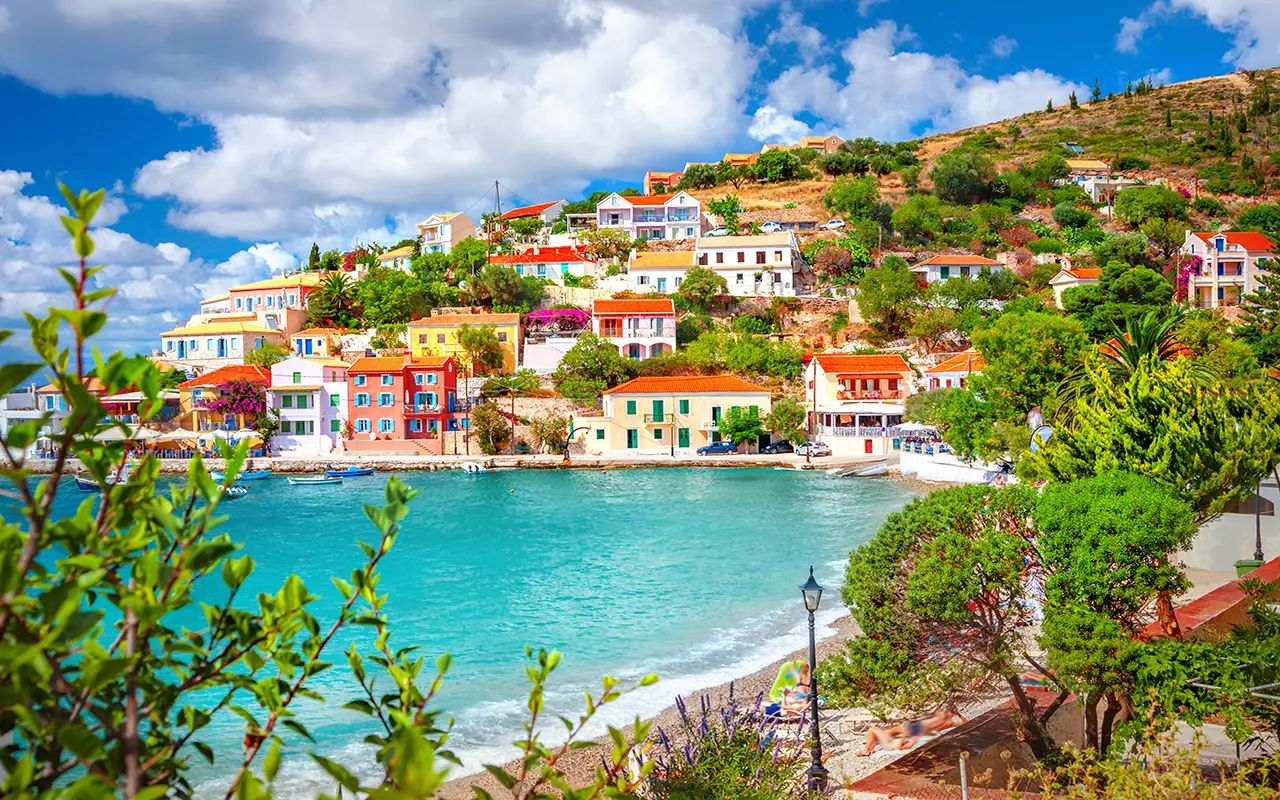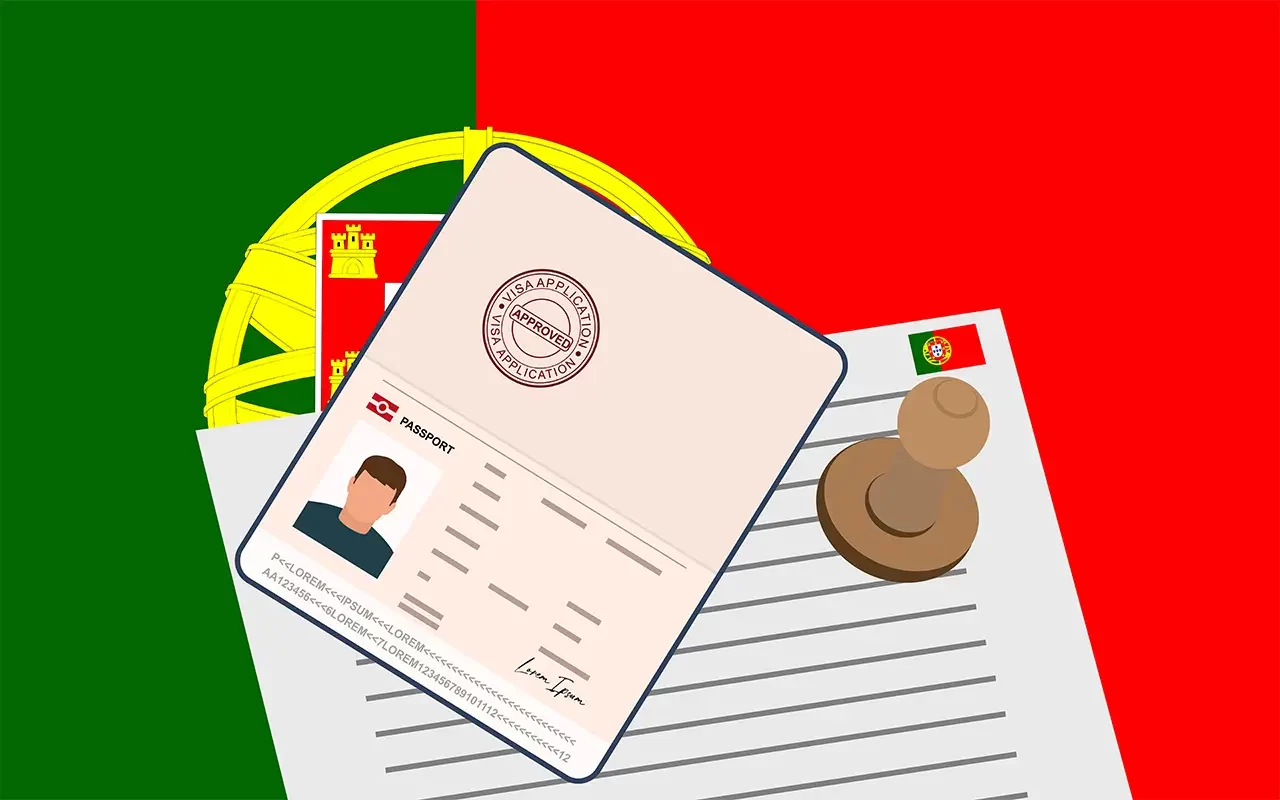
Table of Contents
Overview of Portugal
Portugal is a European country located along the western coast of Spain and the Atlantic Ocean. Portuguese is the official language for its population of almost 10.3 million people. Despite its proximity to Spain, Portugal and its larger neighbor are separated by a firm linguistic barrier-Portuguese is quite distinct from the Spanish language. The westernmost country in continental Europe, Portugal’s position on the Atlantic Ocean nurtured its historical development into a maritime power; a leader of European navigation and exploration. Its capital, Lisbon, long under the radar amongst European cities, is rapidly becoming one of the most popular urban destinations on the continent for its beauty and accessibility (it’s notoriously inexpensive). With its elevated position on the Atlantic coast, Lisbon is a blue tiled city of flamboyant palaces, fantastic restaurants and expressive nightlife. Visitors can tour the colorful National Palace of Pena, enjoy out outdoor performances of Fado, traditional Portuguese music, and indulge in Portuguese cuisine, with its regional dishes of salted cod, meat stews, and egg custard tarts. Travelers to Portugal can also explore over 13 UNESCO Heritage Sites, go whale watching in the famed Azores Islands, and surf the world’s biggest waves in Nazaré. Portugal signed the Schengen Agreement in 1991, becoming part of the Schengen area in 1995.Portugal Schengen Visa Eligibility
Schengen visa eligibility for Portugal includes third country nationals from the following states, who are excluded from visa-free to Portugal/the Schengen area, and are therefore eligible to apply for a Schengen visa to Portugal:|
1. AFGHANISTAN |
53. LAOS |
|
2. ALGERIA |
54. LEBANON |
|
3. ANGOLA |
55. LESOTHO |
|
4. ARMENIA |
56. LIBERIA |
|
5. AZERBAIJAN |
57. LIBYA |
|
6. BAHRAIN |
58. MADAGASCAR |
|
7. BANGLADESH |
59. MALAWI |
|
8. BELARUS |
60. MALDIVES |
|
9. BELIZE |
61. MALI |
|
10. BENIN |
62. MAURITANIA |
|
11. BHUTAN |
63. MONGOLIA |
|
12. BOLIVIA |
64. MOROCCO |
|
13. BOTSWANA |
65. MOZAMBIQUE |
|
14. BURKINA FASO |
66. NAMIBIA |
|
15. BURMA/MYANMAR |
67. NAURU |
|
16. BURUNDI |
68. NEPAL |
|
17. CAMBODIA |
69. NIGER |
|
18. CAMEROON |
70. NIGERIA |
|
19. CAPE VERDE |
71. NORTH KOREA |
|
20. CENTRAL AFRICAN REPUBLIC |
72. OMAN |
|
21. CHAD |
73. PAKISTAN |
|
22. CHINA |
74. PAPUA NEW GUINEA |
|
23. COMOROS |
75. PHILIPPINES |
|
24. CONGO |
76. QATAR |
|
25. COTE D’IVOIRE |
77. RUSSIA |
|
26. CUBA |
78. RWANDA |
|
27. DEMOCRATIC REPUBLIC OF CONGO |
79. SAO TOME AND PRINCIPE |
|
28. DJIBOUTI |
80. SAUDI ARABIA |
|
29. DOMINICAN REPUBLIC |
81. SENEGAL |
|
30. ECUADOR |
82. SIERRA LEONE |
|
31. EGYPT |
83. SOMALIA |
|
32. EQUATORIAL GUINEA |
84. SOUTH AFRICA |
|
33. ERITREA |
85. SOUTH SUDAN |
|
34. ETHIOPIA |
86. SRI LANKA |
|
35. FIJI |
87. SUDAN |
|
36. GABON |
88. SURINAME |
|
37. GAMBIA |
89. SWAZILAND |
|
38. GHANA |
90. SYRIA |
|
39. GUINEA |
91. TAJIKISTAN |
|
40. GUINEA-BISSAU |
92. TANZANIA |
|
41. GUYANA |
93. THAILAND |
|
42. HAITI |
94. TOGO |
|
43. INDIA |
95. TUNISIA |
|
44. INDONESIA |
96. TURKEY |
|
45. IRAN |
97. TURKMENISTAN |
|
46. IRAQ |
98. UGANDA |
|
47. JAMAICA |
99. UZBEKISTAN |
|
48. JORDAN |
100.VIETNAM |
|
49. KAZAKHSTAN |
101.YEMEN |
|
50. KENYA |
102.ZAMBIA |
|
51. KUWAIT |
103.ZIMBABWE |
|
52. KYRGYZSTAN |
Required Documents for Portugal Visa
In addition to English and Portuguese, most standard application forms for Portugal Schengen Visa are available in French, Russian, and Ukrainian. However, if your application contains supplemental materials written in one of those 3 languages, they will likely need to be accompanied by an official translation into either Portuguese or English. All documents required for your Portuguese Schengen visa must be filled in using capital letters. Applications for all Schengen visas to Portugal will contain the following Basic Required Documents:- Valid passport
- Passport sized photos
- Application form
- Fingerprints (biometric data)
- Travel medical insurance
- Visa Fee
- Materials related to your trip:
- Reason for visit
- Where you will stay (accommodation)
- How you will fund your trip (finances)
- Proof that you will leave Portugal before your visa becomes invalid/expires. This is often in the form of a paid roundtrip plane ticket (proof of return).
Portugal Schengen visa fees
The standard Portuguese Schengen visa fee for an adult is 80 Euros. Certain types of applicants (most students, children under 6) are exempt from all visa fees. Please note that these fees are non-refundable. To get a Schengen visa for Portugal, you will likely have to submit a service payment with your visa application-this is a separate cost from the visa fee. Please note that these fees are non-refundable in the case of visa rejection.
How to Apply for a Portugal visa: Steps
- Step 1: Determine your Purpose for travelling to Portugal, which will determine the Type of visa you should apply for.
- Step 2: Determine how many Entries to Portugal/the Schengen area you need.
- Step 3: Gather your Required Documents.
- Step 4: Schedule a Portuguese Schengen visa appointment (if applicable).
- Depending on the location of the consulate/visa center you are applying through, you may have to schedule an appointment in order to submit your application. Alternatively, you may be able to drop off your application without prior arrangement, so long as you do so during normal operating hours. Contact your respective Portuguese Consulate/Embassy or visa processing center directly to find out if you need to schedule an appointment in order to submit your application.
- Step 5: Fill out your application.
- Different Portuguese Consulates/visa processing centers may provide different ways of accessing applications. Depending on where you are applying from, you may be eligible to apply through the online Portuguese E-Visa portal. Access the online portal here, register for an account, and sign in to answer a short questionnaire regarding your nationality, country of residence, and the type/purpose of the visa you are seeking. This information will allow the system to determine whether you may proceed with an application via the E-Visa portal. If you are eligible, you may proceed with filling out your application online.
- If you are ineligible for Portugal’s E-Visa, you should contact your consulate directly to ask how to access a Schengen application. You likely will have to download, fill out, print, and submit a standard Schengen visa form available here.
- Step 6: Pay the application fee.
- Step 7: Submit your Portuguese Schengen visa application (at least 15 days prior to travelling, not before 6 months).
- Different Portuguese Consulates/visa processing centers have different procedures for submitting applications. In almost all cases, applications must be submitted in person to the consulate/center you are applying through.
- When you submit your application, you will likely also be asked to submit biometric data (fingerprints). Children younger than 12 years are likely exempt from having their fingerprints collected. However, facial photo capture is required for all applicants nevertheless of their age.
- After submitting your application, you may be notified of your need to attend an in-person interview at the consulate/center where you applied. This will likely be scheduled for 2 weeks after your application has been submitted.
When to Apply
Submit your application at least 15 days prior to the day you intend to travel, and no earlier than 6 months before you leave.Where to Apply
Applications for Portugal Schengen Visa should be submitted at either a Portuguese Consulate or a visa application center that has a relationship with Portugal. Ideally, you will lodge your application in the country where you legally reside. Locate the Portuguese Consulate/Embassy nearest to you here. If you must apply through a consulate/center located in a country where you are currently legally present, but where you do not legally reside, you must have a valid reason for doing so. In countries where there is no Portuguese consular presence, applications may be lodged via the consulate of a Schengen state representing Portuguese consular interests.Processing Time for Portugal Schengen Visa
The Portugal Schengen visa processing time is generally 15 days, although it can take up to 45 days in certain cases.If your Portugal visa was approved:
Collect your visa and make sure the information it contains is valid and complete.If your Portugal visa was denied:
If you receive a Schengen visa rejection for Portugal, you have the right to an appeal in the form of:- A complaint against the consulate that issued the visa (to be submitted within 15 days of receiving your rejection)
- An appeal to the Portuguese Minister of Foreign Affairs (to be made within 30 days of receiving your rejection)
- (If your appeal to the Minister is refused) A request that the previous refusal be overruled through the Administrative Court in Lisbon (to be submitted within 3 months of receiving your rejection)
Your visa may be revoked if you do not notify the Portuguese Consulate/visa application center of any changes to your trip itinerary that occur after you have submitted your application. Being approved for a Portuguese visa does not guarantee you entry to either Portugal or the general Schengen area – you can still be refused entry to both places upon arrival. Alternatively, you may have to show additional documents regarding your finances or accommodation in order to enter Portugal/the Schengen area.Finally, once you obtain your Schengen Visa for Portugal, please note the following:
FAQs about Portugal Schengen Visa
How long does the decision on Portugal Schengen visa application take?
Most applicants for the Portugal Schengen hear a decision about their visa within 15-30 days of their having submitted their application (sometimes, however, they have to wait a full 60 days for a decision).
Who needs Portugal visa?
In answering this question, one might ask: “Who doesn’t need a Portugal visa?” A Portugal visa is not needed by EU citizens (i.e. citizens of fellow Schengen/EU states). Nor is it needed by citizens of the multiple non-Schengen states which are empowered to travel to the Schengen area by virtue of their visa-free access to the zone. The travelers who need a Portugal visa, therefore, are those who come from countries which do not fall into either of the first two categories (and who are therefore citizens of non-EU/non visa-free access states).